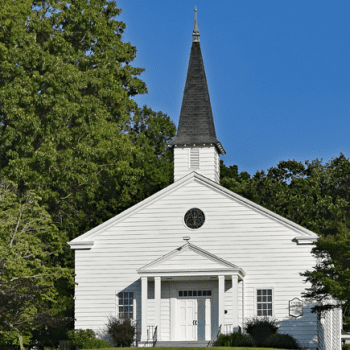This year is my fourteenth year working as a full-time pastor and either served on church staff or was in Seminary for a few years before. When I look back on my younger years in the ministry I often shake my head as I remember things I said or attitudes I harbored which were completely wrongheaded. Thankfully God is gracious, working through us in spite of ourselves and helping us to grow and mature.
So that others can learn from them, here are a few of the foolish things I used to believe about the ministry. (In ten years I will write about the foolish things I believed about the ministry in 2016.)
Before I was in ministry I worked a secular job.
This is common parlance, but horribly wrong headed. When we speak of non-ministry jobs as “secular” work we subtly send the impression that pastors do holy work and everyone else does non-holy work. Farming, accounting, teaching, welding, and thousands of other jobs are not secular work. They fulfill the creation mandate to subdue the earth, provide for the common good, and bring glory to God. One of the greatest needs in our generation is helping believers connect their faith to their work, and we will not accomplish this while we speak of non-church jobs as if they are a lesser form of vocation.
If I preach well everything else in our church will fall into place.
Early in my ministry I assumed that good preaching fixed all of the church’s issues. If people heard and responded to God’s word, they would be counseled and discipled through it instead of needing one on one meetings during the week. As we walked through the Bible and saw what the church is and what it is called to be everyone would be on board with necessary changes because they have been listening to the preaching. If anything, good preaching creates more need and opportunities for the pastor to counsel and do one on one discipleship as the word exposes sin and the need for growth in Christian’s lives. When people ask questions about decisions the church faces it provides great opportunities for personal conversations about the Bible and the church. Then after having these conversations through counseling, discipling, and decision making helps the pastor have a greater understanding of what is people are facing when he prepares to preach each week. A strong pulpit leads to more personal ministry and personal ministry leads to stronger pulpit.
I want my church to be so mature that I never have to explain difficult concepts because they understand them already.
“I want our church to know the Bible so well that I can say ‘justification’ and they know what I am talking about without my having to explain it.” This sentence came out of my mouth. In one sense I was right because I want to see Christians growing in their faith and understanding of the Bible, yet I missed two vital issues. Even Christians who know what justification is need to hear it’s glorious truth laid bare before them so they continue to grow in the knowledge of who they are in Christ, worship Christ because of what he has done on their behalf, and gain a greater understanding of how to explain these glorious truths to others. Also, having a church full of people so mature that they don’t need theological truths explained to them assumes there are no new Christians, struggling Christians, or non-Christians in the room. A healthy church is not composed only of mature believers, but instead sees mature believers, growing believers, new believers, struggling believers and people who are not yet believers when it gathers together before God’s word.
Because I’m the pastor I have the best ideas of anyone in the room.
Unlike the previous point, this precise sentence never came out of my mouth, but my heart and attitude exuded this sentiment. Because I had studied theology, church history, and church ministry and was continuing to study these things I assumed my ideas and ministry plans were going to be better than the ones originating from people who were not devoting the time I was to these issues. This proved itself to be a false assumption time and time again. First I got to see many of my best and brightest ideas go down in flames before my eyes. Then I also saw what happened when we implemented ministries and changes originating with other believers in our church and they flourished. This reminded me that the church is a body and everyone in Jesus’ church is gifted for ministry. Because of this there will be many actively engaged believers who will not only put forward great ideas we need to implement, but who can also hear my plans and offer input so they become stronger and more effective.
New churches don’t have any of the baggage that established churches do.
Remember the idyllic days of the early 2000’s where we all possessed a romanticized view of the new churches we were going to plant which were free of the traditions and problems that exist in established churches? Walking through life with friends who were planting and then planting myself convinced me that new churches have just as many issues as established churches do. Unless you plant a church where you are the only person in attendance, you will have people with strong and competing ideas about what the church is and should be doing. Then, if your church plant survives for a couple of years you will have strongly entrenched traditions that people don’t want to change too. All faithful ministry is hard, all faithful ministry has the opportunity to make an impact, and all faithful ministry brings glory to King Jesus.
I enjoy my work so I don’t really need to take a day off.
Sometimes in Seminary men studying for the ministry imbibe the idea that there is some kind of glory in running on very little sleep. How few hours I have slept in the last four days somehow becomes a badge of honor that shows how hard I am working. This mentality easily transitions into our ministries where we work for weeks without an off day and tell ourselves that this is a good thing because we are doing it for Jesus. Not taking a day away each week from regular ministry duties depletes our energy, burns us out, causes us to neglect our families, and violates the principle of Sabbath rest. We need to labor each week to take 24 consecutive hours away from our pastoral work so we can devote ourselves to rest, time with our families, recreation, and work around our home. Making sure to take this time each week pays great dividends as it builds our family and restores us physically, mentally, and spiritually. (In addition to spending time with your family, yard work is a great thing to do on your day off. When you are a pastor it is refreshing to work at something which gives you immediate, visible results.)
Related Posts:
“48 Scattered Thoughts about Pastoral Ministry and Being a Pastor”
For Further Reading:
On Being a Pastor by Derek Prime and Alistair Begg











